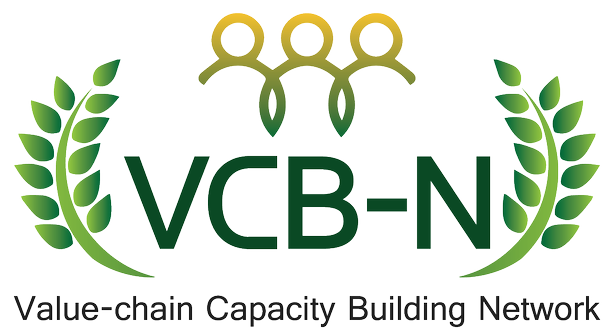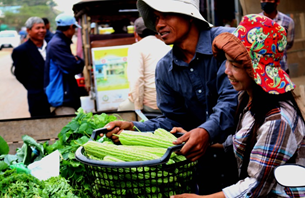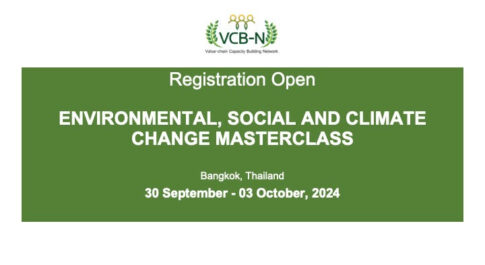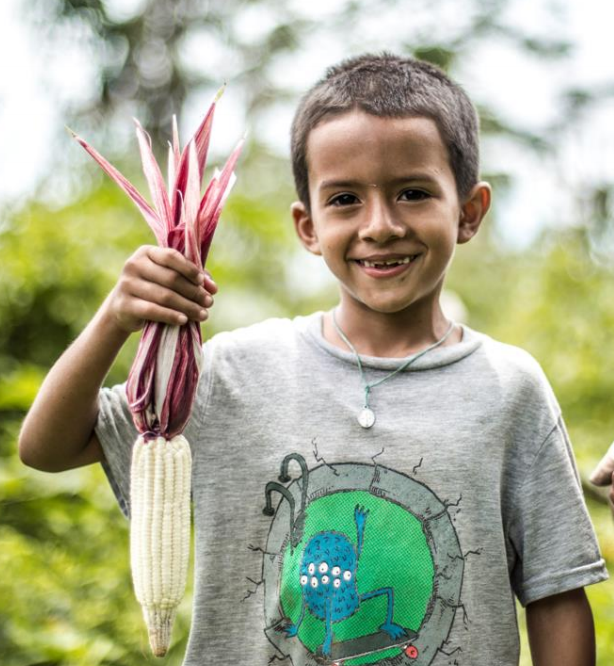
Good practice
Promotion of Inclusive Agricultural Value Chain For Smallholder Farmers
The following good practice is conducted by Dr. Meas Pyseth. The case study was selected and presented in Mekong Knowledge and Learning Fair (IFAD) by representative from Cambodia.

Background
The creation of business clusters to connect smallholder farmers to markets by providing technical, process and market access supports on vegetable and chickens was a PADEE project which was subsequently funded by IFAD and implemented by Ministry of Agriculture Forestry and Fisheries. The PADEE project kicked off in 2012. However, the business cluster approach only started to take shape in 2015. It was implemented for about three years. To a large extent, it was a successful endeavor as more and more farming households participated and were able to use their household to increase income through the intervention. The initiative will be taken up, supported and scaled up by an on-going project funded by IFAD, the Agriculture Services Programme for Innovation, Resilience and Extension (ASPIRE) and Accelerated Inclusive Markets for Smallholders (AIMS).
Innovations / Good Practices
Throughout the project, the implementation strategy has either had to be reviewed or outrightly changed as the years progressed. Some of the difficulties that were encountered and ultimately solved in the course of its implementation include agents of Lors Thmey coordinated the Vegetable production by the beneficiary households; a social enterprise set up by iDE, one of the PADEE project’s implementing partners. Also, quantity and quality of production were agreed upon between individual growers and agents who managed the collection points. Farmers harvested their produce and brought them to the collection points. The collection point agents distributed the produce to wholesalers, retailers and restaurants or the likes. Cash from sales for individual growers was accredited to their personal accounts with local banks not later than a week after the sales.
Also, Chicken raisers from several villages in a community worked together to share experiences, but most importantly to coordinate their production. Most of them kept chickens for meat, while some kept chickens for eggs. Local buyers worked with them but continued to buy from individual farmers. No contract farming. The buyers nonetheless were happy to offer US$0.12 – US$0.25 per kilogram of live chicken above going farm-gate prices.
Model of Multi Stakeholder Platform process
Impact
The target of this project from the onset were smallholder farmers. In the case of the chicken value chain, these beneficiaries included landless farmers too. Generally, the majority of the beneficiaries were women who consisted of farm workers dealing with vegetable production and chicken raising. Furthermore, the initiative benefited 3,628 households (i.e. 2,184 households were served by the collection points, and 1,444 households were members of the value chain clusters) in increasing their income from the farming at least 30%.
Facilitating Factors / Challenges
There were also difficulties experienced in the implementation of this project as previously highlighted, some of the main challenges encountered in the course of this project. For instance, the value chain and market access support were very novel to public agencies and for the beneficiaries. Therefore, it was tried and piloted, early on, as a learning-by-doing exercise. This turned out to be very time-consuming until actual results from the initiative started to take shape.
Similarly, availability and access to water are essential to agricultural production enterprises. Without adequate water, it is difficult for production to take place. Even though the beneficiary farmers tried to harvest and store rainwater, exploit groundwater, and use water-saving technologies (such as plastic mulching, drip irrigation) promoted by the project, farmers remained unable to cope with a shortage of water for their off-farm season farm production. While water was lacking, pests and diseases were also problematic because of changing weather conditions. This restrained farmers’ ability to produce off-season vegetables.
Recommendations
In conclusion, the initiative was adjudged to be a success going by the positive impact it had on several smallholder farmers who benefited from the project. However, the project still has the potential to be much bigger and benefit even more smallholder farmers, if it receives the much-needed additional support it requires. To this effect, IFAD supported project – ASPIRE is taking over the project with the aim of replicating and improving it.
You may want to read








